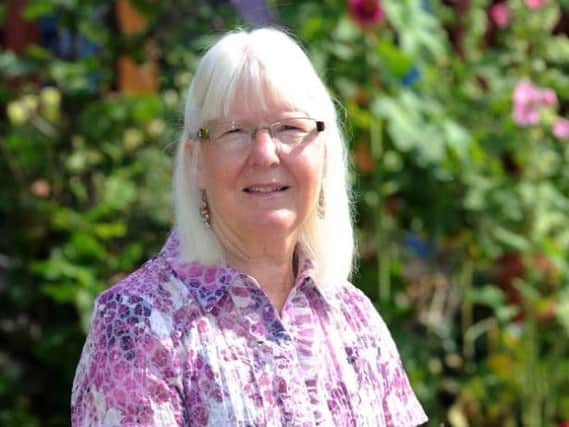'People are lonely, who shouldn't be': Maureen Greaves, widow of murdered Sheffield church organist, on community and the loneliness epidemic


She said: “There was a moment on Christmas Day - it was around six o’clock, I remember looking at the clock - and everybody had left the room.
“Everybody had come to say goodbye to Alan, in the family; our daughters had gone to get a drink and I was there with Alan by myself.
Advertisement
Hide AdAdvertisement
Hide Ad“I took hold of his hand and it suddenly made me reflect, ‘Gosh, this is going to be a murder case, someone somewhere has done this to Alan and he’s obviously going to die.’
“And then I thought, it’s Christmas day.”
Mrs Greaves, an officer with the Church Army, part of the Church of England, said an image came to her mind of the service she had been due to lead in her north Sheffield church that day, when she would have asked people to join her in the Lord’s Prayer and ask God to forgive their sins, ‘as we forgive those who sin against us’.
She also thought about the message of Jesus’ arrival, that Mr Greaves was due to have been preaching about during the same service.
“This made me really sit before God and say OK, God, you would want me to forgive the people that have done this to Alan and I do want to forgive them, so I want you to help me to do this because I want to do it fully and completely,” she said.
Advertisement
Hide AdAdvertisement
Hide Ad“So that when I meet them, and one day I will, your forgiveness will still be there, totally and permanently.”
Mrs Greaves, 69, did come face-to-face with her husband’s killers at the subsequent court hearings the following year, in which Jonathan Bowling, then 22, admitted murder and was sentenced to life in prison and Ashley Foster, also 22, was jailed for nine years for manslaughter. Mr Justice Teare said they had selected their victim “at random”.
Mrs Greaves said her faith gave her the strength to empathise with the men’s families and when Foster was released on licence last year, she said the news “didn’t floor me”.
At the time of Mr Greaves’ death, the couple had begun a church-based community project that has since blossomed.
Advertisement
Hide AdAdvertisement
Hide AdStruck by the deprivation they had seen in their neighbourhood of High Green, Sheffield, they had set up a makeshift food bank from their garage.
Three weeks before Mr Greaves’ murder, they expanded the St Saviour’s Project, named after their church, by opening a community shop and food bank on their street.
Mrs Greaves said she had been left so heartbroken in the immediate aftermath of her husband’s death that she had stepped back from the project, but once she realised it had started to struggle she began to get involved again.
“It was something we created together and I didn’t want it to fail,” she said.
Advertisement
Hide AdAdvertisement
Hide AdThe project is now thriving, with 23 volunteers in the shop and an allotment nearby.
It is perhaps a reminder of the community spirit Mrs Greaves saw in her childhood in the city, when she remembers families joining together to support each other through periods of financial hardship when fathers would be laid off from the steelworks if the work dried up.
Growing up in the east end of Sheffield left Mrs Greaves with “community in my heart ever since”, she said.
“I lived in the most marvellous community. Most people did the same jobs in the steelworks. Most people got laid off at times because the work wasn’t there and so we knew poverty. But we knew community, we knew sharing, we knew how to help each other out. As a child I watched mums and dads pool money to buy fish and chips for us all to share on a sunny evening,” she said.
Advertisement
Hide AdAdvertisement
Hide Ad“Most of our play time was in a yard, a big yard, where mums and dads would bring out the tin baths for us to play in and take down the washing line for us to skip with.
“So I knew true community.”
But there is something that greatly upsets Mrs Greaves now as she undertakes her outreach work.
“I am very saddened now in a way that I can’t describe to you by how community has gone and that I am now visiting people who are lonely, who shouldn’t be, and visiting families who hardly see each other who should be.
“I am seeing mums bringing up little children without the help of grandmas and grandads, which is what I had.
Advertisement
Hide AdAdvertisement
Hide Ad“So I am greatly saddened by the lack of community that I am now seeing and experiencing in my work.
“I think loneliness is the greatest challenge that we are facing, not just us, not just here in High Green but I understand it is across the country.
“I used to go and visit a 97-year-old lady who only died about four months ago. She had two grandchildren in Sheffield and she only saw them two or three times a year and she used to say to me, ‘When they come and see me, Maureen, they bring their mobile phones and they sit on their mobile phones.’
“That lady was a beautiful lady,” she said. “These stories to me are heartbreaking, that that lady should not have had her grandchildren around her. Duty isn’t done any more.”